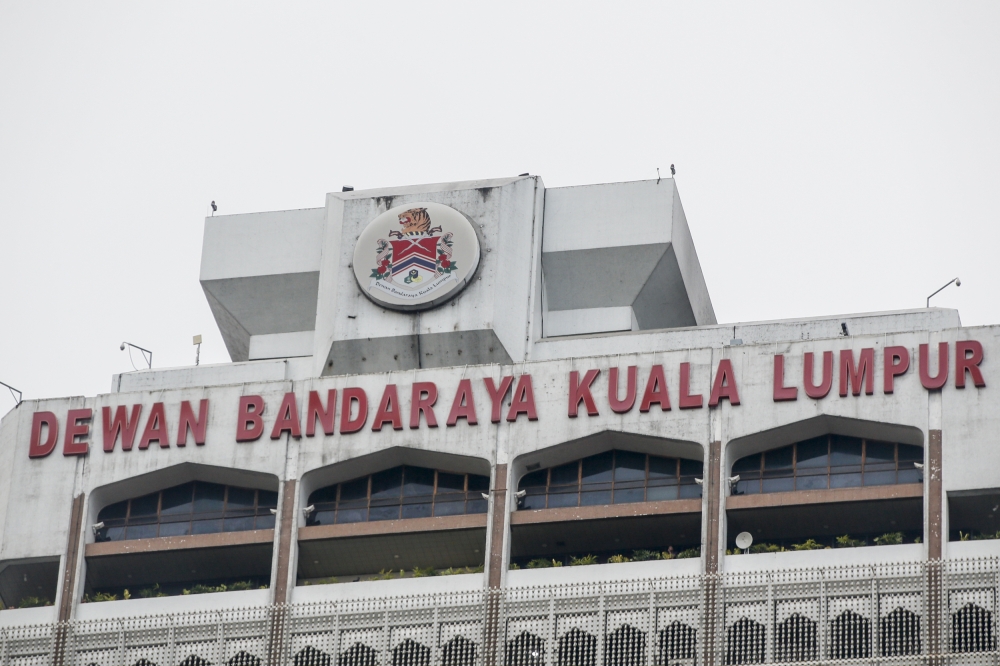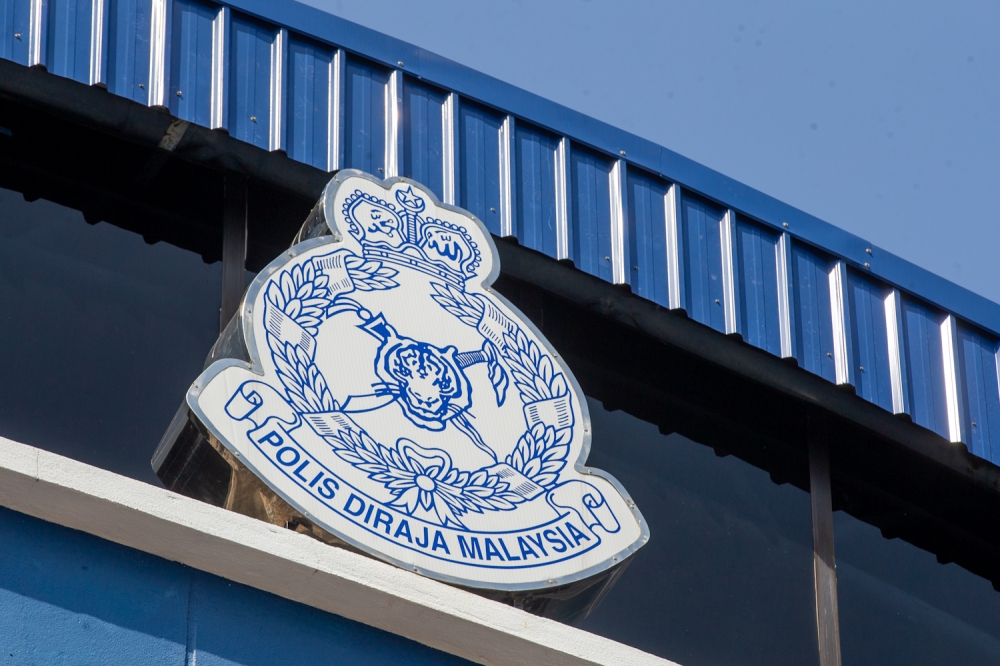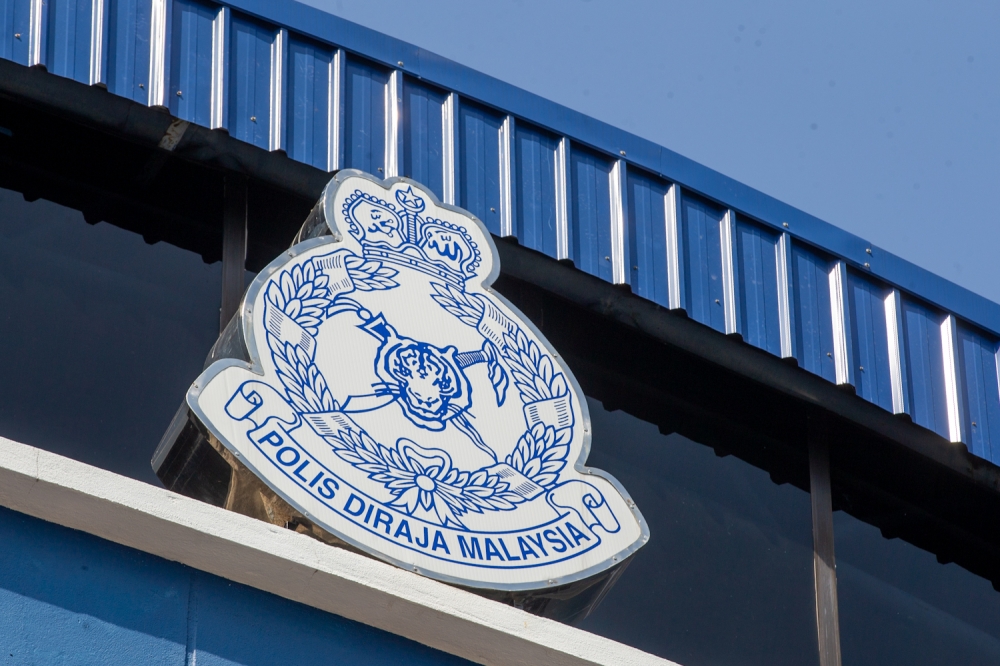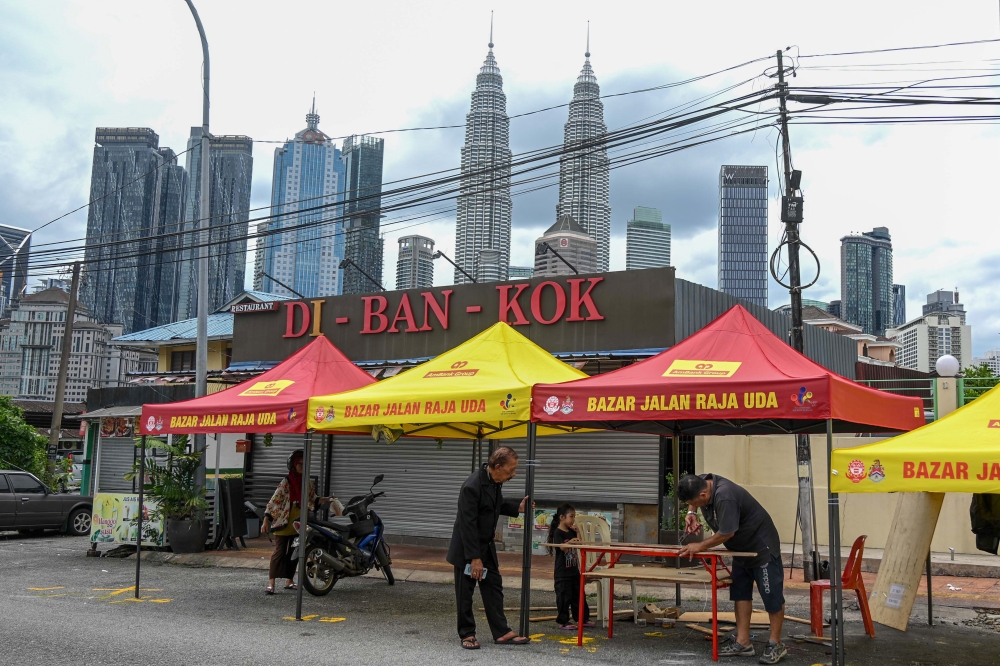KUALA LUMPUR, June 22 — The Muslim holy month of Ramadan is typically associated with dozens of delicious dishes, but arguably none is as historically rich as the humble bubur lambuk.
This simple porridge has acquired an iconic status thanks to its origin as free food distributed by the century-old Jamek Mosque in Kampung Baru here.
Started as a simple meal shared among locals who frequent the mosque during breaking of fast, the porridge is now big business with the most popular stalls generating more than RM10,000 a day!
These stalls boast a list of blue chip customers ranging from big banks to corporations. “I’ve had Petronas, CIMB, Petron coming to me to order,” said 70-year-old Abu Bakar Mohamad, the famous man who runs Pak Hassan’s Bubur Lambuk stall on Jalan Raja Abdullah.

Abu Bakar, or more popularly known as Pak Hassan (he wouldn’t explain why he’s called that), owes much of his success to the Jamek mosque community located just less than a kilometre away from his humble stall, and he explains why:
“For you to be able to say you are selling bubur lambuk Kampung Baru, you have to had worked as a cook at the mosque. Only then will it be considered the authentic Kampung Baru bubur lambuk,” the soft-spoken man told Malay Mail Online.
The Jamek mosque bubur lambuk is considered by fans to be the gold standard for the dish. This explains why Kampung Baru has produced so many imitators claiming to sell bubur lambuk made according to the exact recipe used by cooks at the mosque.
Some even go as far as claiming that their late father or uncle worked as cooks in the mosque, although there is no way to verify this.
.jpg)
It begins with a 90-year-old recipe
Legend has it that the Kampung Baru bubur lambuk recipe came from a man named Haji Said who brought the dish to share with a few of his companions during the breaking of fast at the mosque around 90 years ago.
It is said his friends fell in love with the dish and later asked that his wife make more of the porridge for them.
Word spread fast and more and more residents around the area started giving Haji Said and wife ingredients to make the bubur. As the reputation of his bubur lambuk and demand grew, the mosque decided that they would cook the dish as a staple, so that it could be distributed among those who break fast there.
The exact same recipe has been handed down four generations and the popularity of the Kampung Baru bubur lambuk has now spread beyond the city’s Malay enclave to as far as Singapore and Indonesia.

“What we learned from Haji Said, the ingredients we use to cook the bubur lambuk are exactly the same. You can ask anyone. If they tried the bubur, say 20 years ago, they will say it tastes the same,” said 63-year-old Zainal Abidin Abdul Hamed who has cooked for the mosque for 36 years and has since taken over as the head cook.
The basic ingredients for the bubur lambuk? Rice, beef, coconut milk, dried shrimp and herbs like cinnamon and cumin seeds, and loads of it. The dish is cooked in a giant pot, and Zainal’s seven-man team usually cook about 20 to 30 pots on average a day. One pot can produce around 300 packets and costs about RM550.
One pot of bubur lambuk uses about 15 kilograms of rice, six kilograms of beef and coconut milk, a kilogram of dried shrimp and a few kilograms of herbs and spices. That means as much as 300 kilograms of rice and 120 kilograms of beef and coconut milk are used daily, and Zainal said he would ensure every last bit of the ingredients is poured into that giant alloy pot.
.jpg)
Community spirit
Cooking usually takes about one and a half hours on average per pot and is usually done in the morning. Later on, another team takes over packing and distribution, which is done at the back of the mosque compound after Asar prayers at around 4.45pm. A third team then takes over to serve the food to those breaking fast at the mosque.
The queue for the bubur lambuk is usually long, stretching about a kilometre from the front going all the way to the back of the mosque. On a busy day, as many as 15,000 packets of the bubur lambuk are distributed with the last often given away just before 7.30pm, the time for breaking fast.

Pak Hassan’s stall is even busier, with customers queuing from as early as 10am to buy the bubur. Abu Bakar cooks an average 30 pots a day, but serves smaller portions, which means a pot can produce up to 450 packets. But not all are for sale. Continuing with tradition, he allocates about 1,000 packets for free distribution.
“Ten pots are usually allocated for sale. We sell each packet for RM2 each. But we have three pots to be distributed for free, which is what the bubur lambuk is all about,” he told Malay Mail Online.
And love for this tradition of sharing has continued to drive and keep Zainal away from commercialising his cooking skills. “I have had other mosques offering me a job to cook for them. But I am a true Kampung Baru boy. This is my community so I would like to stay here and help this mosque and keep this tradition within my community,” he said.

















.jpg)


